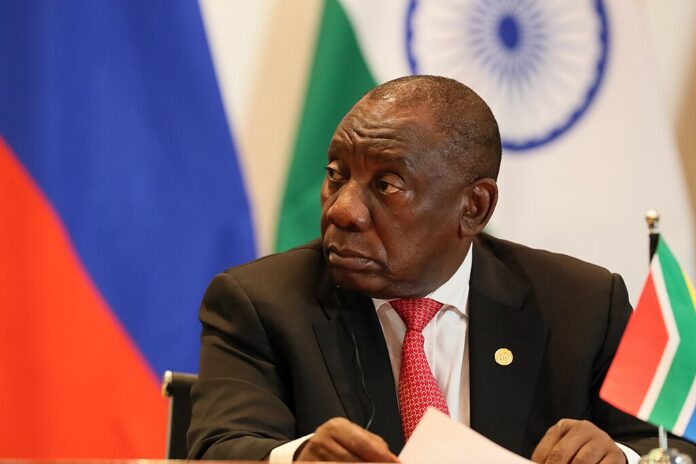Cosatu opposes DA’s demand for a deputy president role in GNU
As South Africa eagerly awaits the announcement of the new Cabinet, tensions rise within the newly formed government of national unity. President Cyril Ramaphosa, after being sworn in for his second term, faces significant pressure from coalition partners over key Cabinet positions. Among the most contentious issues is the Democratic Alliance’s (DA) demand for its leader, John Steenhuisen, to be appointed as Deputy President.
The ANC’s recent election performance was its worst since the end of apartheid, securing only 40% of the vote and losing its absolute majority in Parliament. In response, the ANC formed a GNU with the DA and other smaller parties, including the Inkatha Freedom Party (IFP) and the Patriotic Alliance (PA). This coalition, which collectively secured over 70% of the vote, aims to ensure broad representation and a strong mandate to govern.
Embed from Getty ImagesDespite this coalition, internal disagreements have surfaced, particularly concerning the DA’s demands. Media reports suggest that the DA is also seeking at least ten Cabinet positions, including key economic portfolios. Currently, the position of Deputy President is held by the ANC’s Paul Mashatile.
Matthew Parks, Cosatu’s parliamentary coordinator, publicly opposed these demands in an interview with Newzroom Afrika. Parks expressed doubt that the ANC would concede the influential Deputy President role to the DA. He also dismissed the possibility of creating a second Deputy President post to accommodate Steenhuisen, pointing out that such a move would require constitutional amendments and questioning its necessity.
Cosatu also voiced concerns over the DA handling critical economic ministries. Parks highlighted that the DA’s history of opposing black economic empowerment (BEE) measures makes it unsuitable for roles that are vital to supporting local industries and procurement. He stressed that while negotiation demands are typically high at the start, a middle ground must be found that aligns with the coalition’s broader goals.
The negotiation process within the GNU remains complex, with significant policy differences between the ANC and DA. Cosatu insists on a stable and coherent Cabinet capable of governing effectively amidst these challenges. The outcome of these negotiations will significantly impact the direction of South Africa’s seventh administration.
Analysis
Political: The DA’s demand for the Deputy President post highlights the shifting power dynamics in South African politics. The ANC’s need to form a coalition after losing its majority has given smaller parties, like the DA, substantial leverage. This situation underscores the delicate balance the ANC must maintain to lead a stable government while accommodating diverse political interests.
Social: This political scenario reflects broader societal debates about representation and governance. The formation of a GNU aims to address the electorate’s desire for inclusive governance. However, the tension over key positions reveals underlying societal divisions and the challenges of uniting different ideological stances under one government.
Racial: The debate over the DA’s role in the Cabinet touches on racial dynamics in South Africa, particularly concerning policies like BEE. The DA’s historical opposition to BEE raises concerns about its commitment to addressing economic disparities that disproportionately affect black South Africans. This issue remains a sensitive topic in the country’s ongoing journey towards racial equality.
Gender: The current discussions do not prominently feature gender issues, but the composition of the new Cabinet will likely be scrutinized for gender representation. Ensuring gender diversity in top government positions remains a crucial aspect of promoting equality and reflecting South Africa’s demographic makeup.
Economical: Economically, the allocation of key ministries to different parties within the GNU will shape South Africa’s economic policies. The DA’s demand for economic portfolios, coupled with its market-friendly policies, contrasts with the ANC’s approach, which often includes state intervention and affirmative action measures. The outcome of these negotiations will influence South Africa’s economic strategy and its impact on growth, employment, and inequality.
